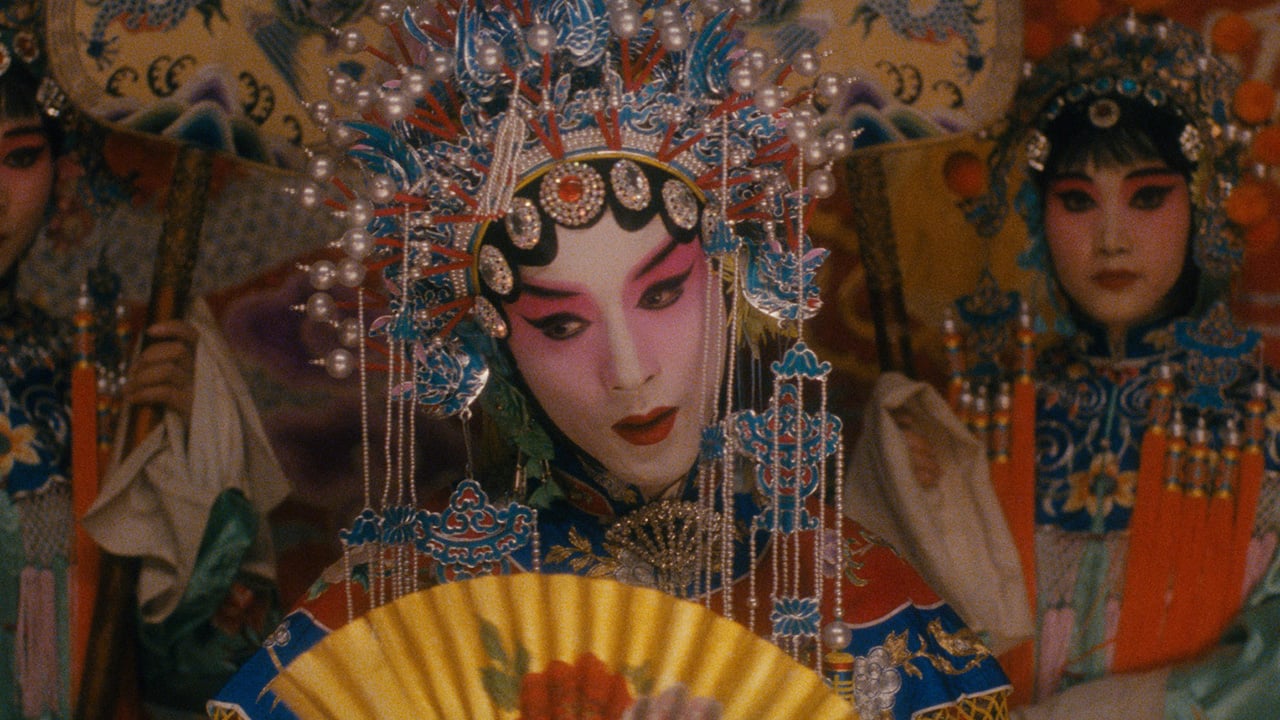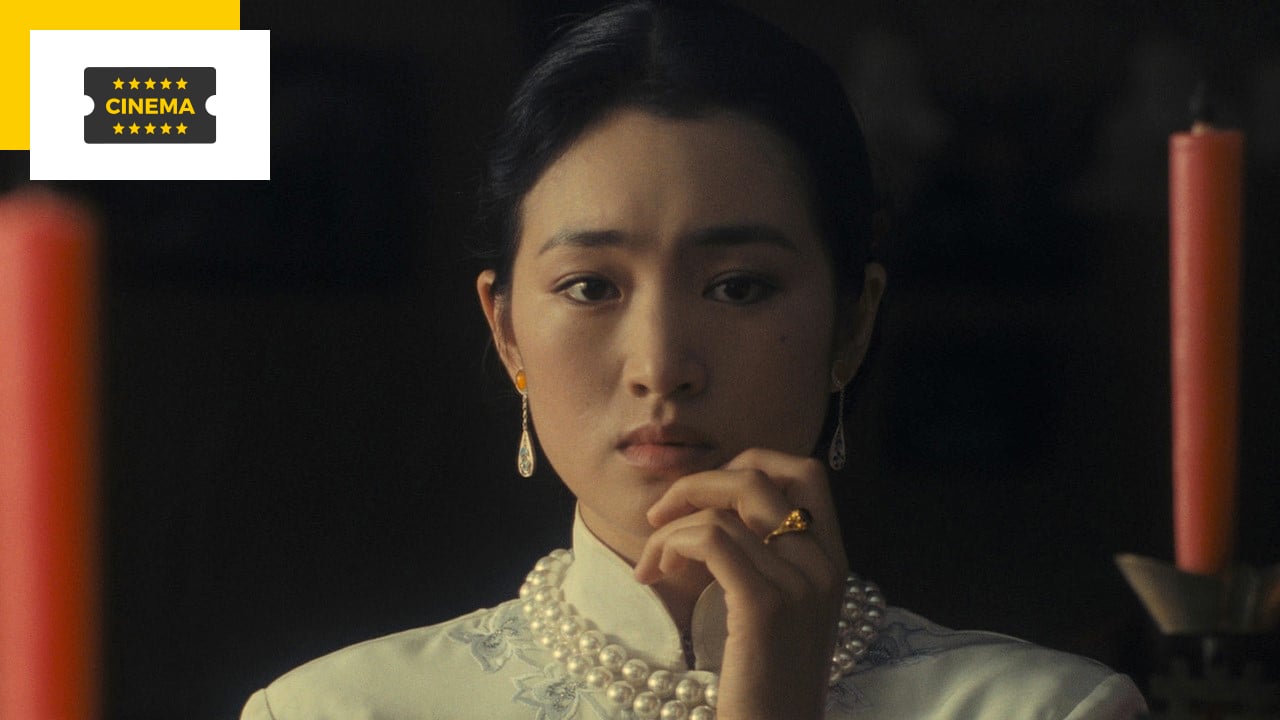A masterpiece of Chinese cinema, Palme d’or at Cannes in 1993, Adieu ma concubine returns to the cinema! To celebrate its 30th anniversary, the film is getting a facelift in 4K thanks to Carlotta Films.
Directed by Chen Kaige, Adieu ma concubine won the supreme prize at the Cannes Film Festival in 1993, the Palme d’Or (ex-aequo with The Piano Lesson by Jane Campion). On the occasion of the 30th anniversary of its theatrical release, this masterpiece is back on the big screen in a restored 4K version.
This flamboyant fresco takes us to Beijing in 1924. Douzi enters Master Guan’s academy to learn the art of Chinese opera. Very quickly, he befriends the young Shitou. As teenagers, the two boys obtain the main roles of the opera “Adieu ma concubine”, those of King Chu and his mistress Yu. This great classic of Chinese culture will lead them to glory.
Ten years later, now known as Dieyi and Xiaolou, the inseparable Douzi and Shitou tirelessly play this same opera. But an upheaval will soon occur. Always in love with his partner, Douzi learns of Shitou’s engagement with Juxian, a former prostitute…
Farewell my concubine takes us to the heart of a turbulent period in Chinese history. With this river story of 3 hours, Chen Kaige not only offers us a dazzling aesthetic spectacle; it also delivers a sharp criticism of the liberticidal practices established since the Cultural Revolution by the Chinese government.
Note that the feature film features exceptional actors, Gong Li, Zhang Fengyi and the late Leslie Cheung, who died in 2003. Suffering from chronic depression, he ended his life at the age of 46. Hong Kong superstar of the 80s and 90s, the artist left a great void in the world of cinema after his tragic death.
GENESIS OF THE PROJECT
Originally, Adieu ma concubine is a novel published in 1985 by the Hong Kong writer Lilian Lee. Producer Hsu Feng gave this book to filmmaker Chen Kaige during the 1988 Cannes Film Festival, offering to take on the film adaptation. Two years later, the director accepted the project after meeting the novelist Lilian Lee.
Chen Kaige signed on to do the project, on the condition of making some changes to it. He thus adds a prologue and an epilogue, set in 1979, and decides to modify the links between the characters.
“It was only by thinking about it afterwards that I found a basic idea on which to build a scenario: the notion that people are often victims of circumstances. them. That of Juxian, for example. In the novel, she has a rather weak character”explains the director.
“But I told myself that the film wouldn’t hold water if it didn’t have a strong female character. The scenario is indeed based on the interaction between the three characters of Duan Xiaolou, Cheng Dieyi and Juxian, each of them being able to alternately come to the fore, depending on the point of view adopted”analyzes Chen Kaige.
Charlotte Films
ETERNAL REGRETS
Moreover, if the filmmaker decided to accept the adaptation of the novel, it is also for a personal reason. At the age of 14, Kaige denounced her own father under pressure from Chinese authorities. A filmmaker and opera enthusiast, Chen Huaikai, the director’s father, was a member of the Kuomintang, the Chinese nationalist party, the oldest political party in contemporary China.
His father’s membership in this political force had cost Kaige his integration into the Red Guards. This movement was made up largely of students and high school students, which Mao Zedong used, from the summer of 1966 to 1968, to continue the process of Cultural Revolution. The young Chen Kaige really wanted to be integrated into this group and will choose to denounce his father to achieve this. He will regret it all his life.
“When the Red Guards appeared, I sought to join them. I wanted to be part of the group, not to be a lonely teenager anymore. I was afraid. The Red Guards did not want me, because my father had I was part of the Kuomintang. I was the son of an enemy. I learned the Little Red Book “by heart, like everyone else, I participated in the demonstrations. Finally, I was accepted”remembers the director.

Charlotte Films
“Then the Red Guards burst into our house and forced my sick mother to stand in a corner for four hours. When she was offered a chair, she refused it. I did not defend her, I blamed myself. I was torn, how could I show love to my parents and, at the same time, be of service to the people? As a director, now, I have a responsibility: I must say what I did, how I denounced my father. I suffer from it, and this suffering is found in Adieu ma concubine”said Chen Kaige.
In this sense, the scenes of trials by young Maoists sadly and terribly echo this cruel and painful moment in his life. “Adieu ma concubine transports you to another world, immerses you in the struggles of its characters and leaves an indelible mark on your soul”, director Guillermo Del Toro said of Chen Kaige’s film. For the illustrious filmmaker Wong Kar-Wai, Adieu ma concubine is “a haunting and bewitching film.”
If you have never seen it or if you want to see it again in a restored version, the work was released in theaters on August 16.
